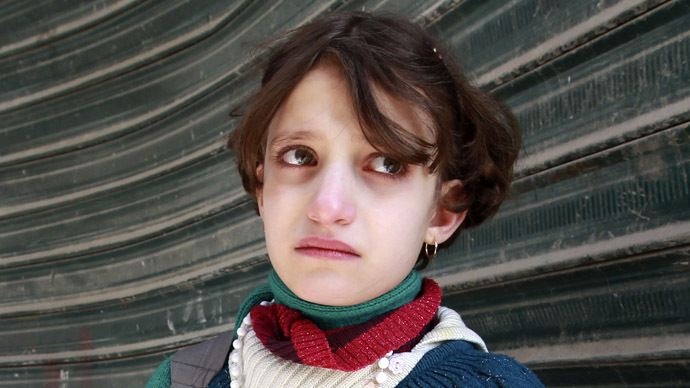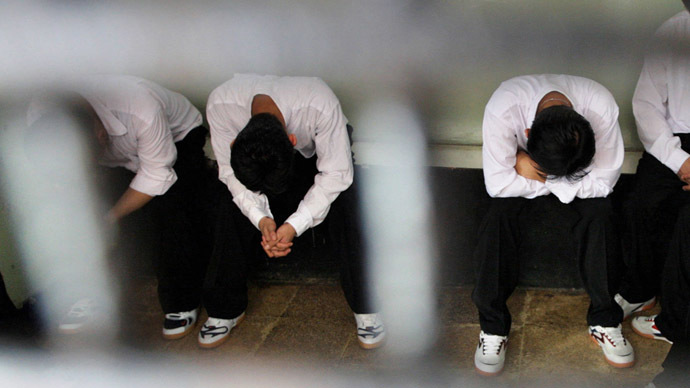Mentally ill children held in prison cells as care facilities cut

Vulnerable British children are finding themselves locked in prisons rather than receiving required medical help, as hospitals and medical centers lack the resources to treat them, new figures show.
The data, produced by the Care Quality Commission (CQC), shows counties including Norfolk, Hampshire and Devon have no facilities or places of safety for children under the age of 16.
Other areas of the country were found to have mental health units that were severely underfunded, meaning that fewer than five vulnerable children could be treated.
The data also showed that of the 23,000 incidents involving vulnerable individuals since last year, one in four were sent to prison cells.
More than 200 children were taken into police custody, despite recommendations that the measures should only be used in “exceptional circumstances.”
READ MORE:British war veterans deprived of long-term support – MPs
The CQC’s analysis also showed that people were being turned away from treatment and rehabilitation centers because wards were full or short of staff.
The figures come after warnings from the Health Select Committee (HSC) of “serious and deeply ingrained problems” with child and adolescent mental health services in the UK. The HSC also said government cuts to mental health services were putting more children at risk.

“It’s hard to see how a police cell could possibly be considered a more suitable option,” said Sarah Woolaston MP, who chairs the HSC.
“As a former police forensic examiner, I would suggest that anyone who believes so has probably never spent time in one; they are frightening places, especially at night.”
Woolaston also said at-risk children being detained by police sent a bad message, especially as they are in a “distressed state” already.
However, the government insists it is investing money into mental health programs, and that it had launched a taskforce to “drive up standards” in NHS wards.
“We've invested £7m in new beds, I've launched a taskforce to improve services, and we are introducing a new waiting time standard to make sure young people with psychosis get prompt treatment,” said Care and Support Minister Norman Lamb.
READ MORE:Two-thirds of mentally ill Britons receive no treatment
Campaigners and academics have long criticized of the government’s mental health policies and how effective they are at helping young people.
On Monday, psychologists from the University of Reading said that teenagers with anxiety problems were being treated with a “one-size-fits-all” approach to psychological problems, and that treatments given to young children were simply being “adapted” for teenagers.
According to the CQC, one in 10 children between the ages of 5 and 16 suffered some form of mental disorder, with the most common being anxiety, depression or behavioral problems.













